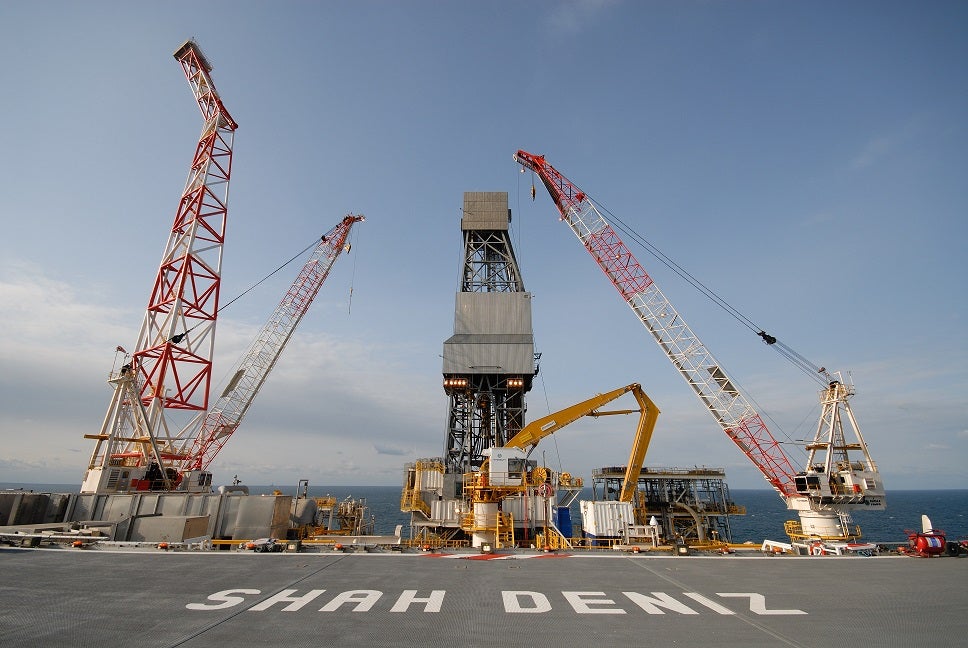
Russia’s Lukoil has signed an agreement to acquire an additional 15.5% stake in the Shah Deniz natural gas project in the Azerbaijan sector of the Caspian Sea from Petronas for $2.25bn.
The deal enables Lukoil to increase its stake in the project from 10% to 25.5%.
BP is the operator of the project with a 28.8% stake, while TPAO (19%), SOCAR (10%), NICO (10%), and SGC (6.7%) are its other partners.
Lukoil president Vagit Alekperov said: “Around thousand Russian businesses, including LUKOIL, are involved in implementation of the Action Plan for Development of Key Vectors of Cooperation between Russia and Azerbaijan, which was signed in 2018 during the meeting of the two national leaders.
“Increasing our share in the Shah Deniz project creates new opportunities for synergy in future-oriented economy sectors of our countries.”
Located 70km southeast of Baku, Shah Deniz is a gas condensate field that started commercial production in 2006.
Discovered in 1999, the field covers nearly 860km2 and had approximately one trillion cubic metres of gas and two billion barrels of condensate initially in place.
The Shah Deniz consortium extracted 18.1 billion cubic metres (bcm) of gas and 3.6 million tonnes of gas condensate from the field last year.
Gas produced from the field is sold on the markets of Azerbaijan, Georgia, and Turkey.
In July this year, BP and its partners announced the start of production from the East South flank of the $28bn Shah Deniz 2 project.
Separately, Lukoil announced the continuation of the upgrade of the Stavrolen petrochemical plant in the city of Budennovsk, with the second stage of Gas Processing Unit (GPU-2).
GPU-2 is anticipated to expand the utilisation of associated petroleum gas delivered to the facility from North Caspian fields to 5bcm per year.
It is the first unit to be constructed under the Stavrolen integrated development programme, which is expected to increase Stavrolen’s capacity to produce ethylene from 350 to 420 thousand tonnes per year, and polyethylene from 300 to 405 thousand tonnes per year.






